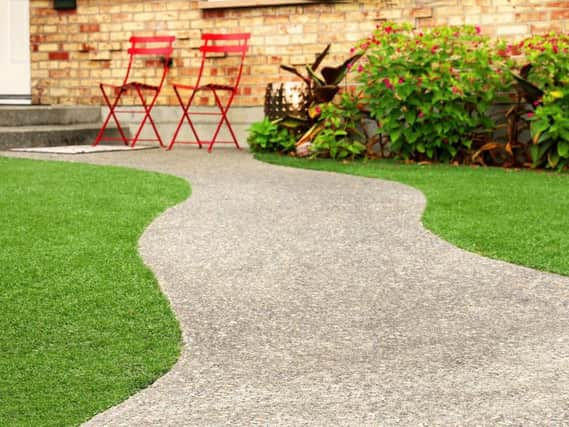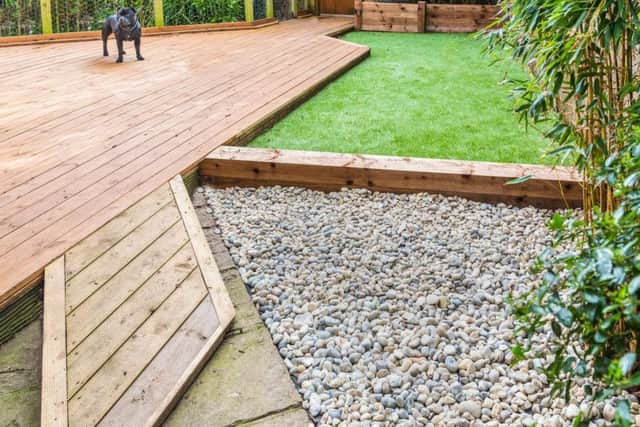Artificial grass could be an at-home solution for climate change


A report from the Royal Horticultural Society (RHS) said cooler, wetter conditions were leading to an extended growing season, making maintaining a fresh, green lawn a challenge even for the most seasoned of gardeners.
The report, called Gardening in a Changing World, said climate change was set to be a defining issue of the 21st century, and predicted a rise in the number of gardens opting for fake grass.
Advertisement
Hide AdAdvertisement
Hide Ad“Our gardens can help in many ways, from combating our emissions and storing carbon, to providing safe havens for our wildlife and contributing to our health and well being,” it said.


“As a result, our perspectives on what a garden should be and what we might like to grow in it will have to change.”
A survey of 1,000 gardeners found the effects had already started to take hold, as those in the north were having to mow their grass more than those in the south.
The factors most likely to impact on our gardens are an increased frequency of very wet days, more so in the north, droughts caused by a rise in average temperatures, and more extreme windy spells and storms, it said.
Advertisement
Hide AdAdvertisement
Hide AdThe report also recommends gardeners do all they can to conserve water, as dry spells are expected to increase in the coming years.


Artificial grass is suggested as a solution to both increased drought and extended downpour, and Nick Mason, sales manager at of Fylde Grass, in Blackpool, said his company had already seen an increase of people opting for the low-maintenance lawn replacements.
“There has been a big leap in the technology of artificial grass in the last few years which has made it more attractive, but I also think climate change is a big part of why it’s become more popular.
“We get a lot of enquiries from people who want to winter-proof their garden. With the extra rainfall, grass can get really waterlogged and you can end up with a garden that more resembles a swamp than a slice of paradise. “
Advertisement
Hide AdAdvertisement
Hide Ad“People, especially those with young families or pets, want to be able to use their garden all year round. Why settle for a lawn that’s only usable a few good days a year?”
Artificial lawns come with drainage holes to prevent standing water problems in the winter and, naturally, require no watering, feeding or mowing. This helps to conserve resources and finance the conversion to fake grass.
“As the RHS report says, we need to start thinking about how we are going to create the gardens of the future,” said Nick, adding that now was the time to start winter-proofing your garden.
“Putting in artificial grass is an easy win that solves problems straight away.”
Advertisement
Hide AdAdvertisement
Hide AdThe report was published with help from the Universities of Sheffield, Reading and Coventry, as well as the Met Office.
Additionally, it recommended that gardeners in the north should start planting fruit and vegetables by walls and along sheltered paths and alleyways to protect from storms, and that raised flowerbeds would help drain excess rain water.
To speak to Nick and his team about using artificial grass to winter-proof your garden, visit www.fyldegrass.co.uk or on the phone at 01253 486144.